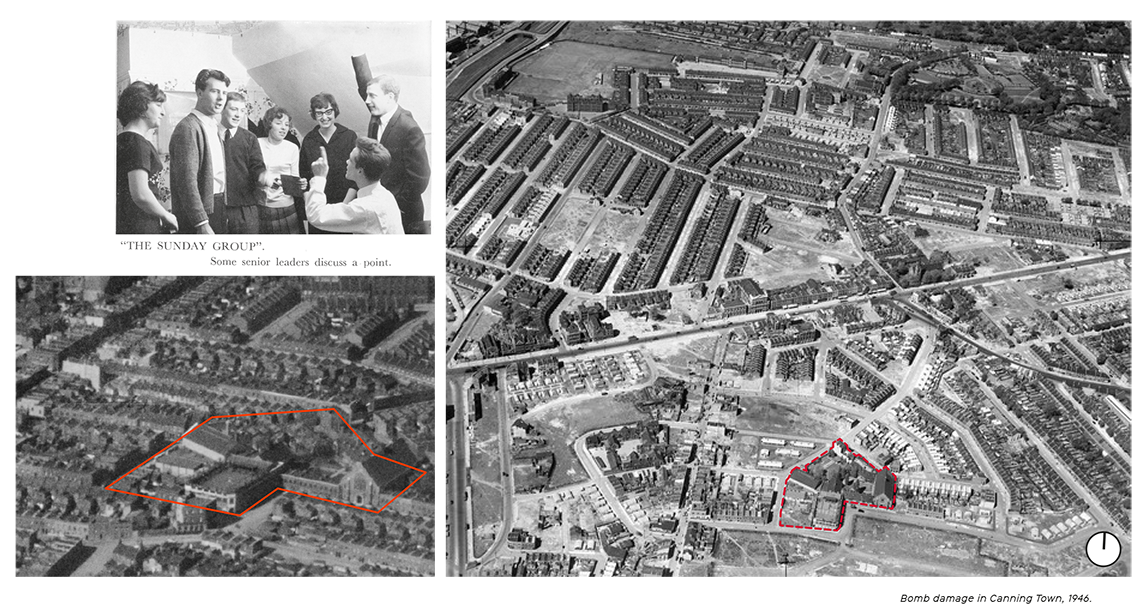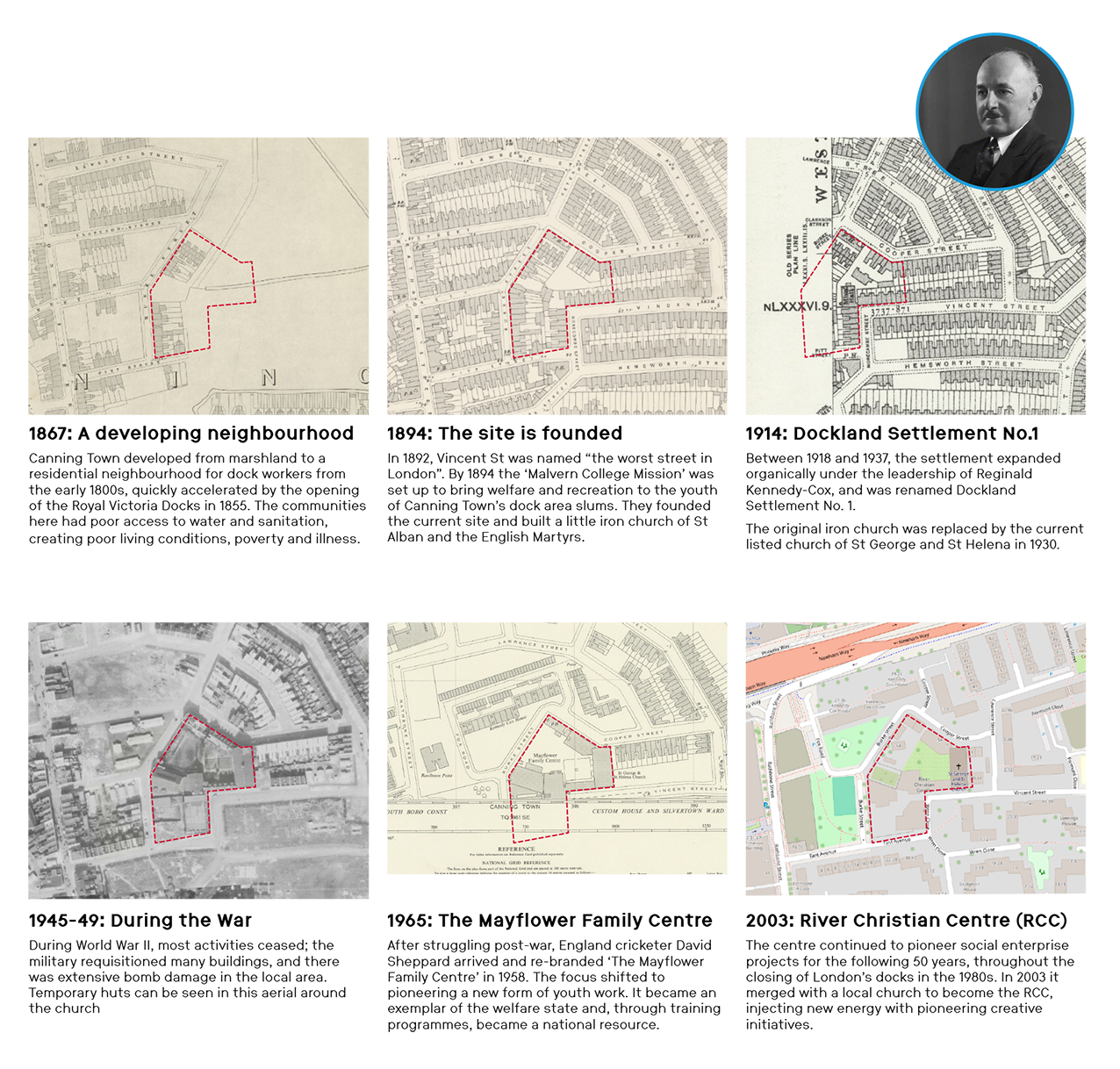Historic Context

A 125-year long community legacy
The site falls within the Postwar comprehensive development zone.
The RCC was formerly known as Docklands Settlement No.1 – the first in a network of amenity centres in deprived areas of London. These centres were created to meet the social and spiritual needs of the local population at a time when there was no public provision of such services.
The church became a centre for a number of clubs and societies meeting a variety of practical and spiritual needs.
The programme of extensive rebuilding at Settlement No. 1 continued through the 1920s and early 1930s, and eventually included a large activity hall, a gym, a swimming pool, a theatre, a roof garden, and additional residential accommodation.
In 1929 the original iron chapel was replaced by a new chapel building dedicated to St George and St Helena.
Queen Mary was present at the chapel’s dedication.
History of the chapel
The RCC’s roots trace back to 1892, when an Vincent Street, Canning Town was identified as “the worst street in London”. By 1894 the ‘Malvern College Mission’ was set up in Canning Town to bring welfare and recreation to the youth of the dock area slums.
In 1918, a Malvern schoolboy returned after a successful theatre career – Sir Reginald Kennedy-Cox – who purchased property for the charity, founding what became The Dockland Settlement.
The Settlement Mission quickly became a beloved haven of friendship, warmth, and refuge. Its success led to the opening of other Dockland Settlements across the UK, gaining Royal Patronage.
In 1929, the Chapel at Canning Town was opened by Queen Mary, followed by further buildings. Although WWII disrupted progress, the Chapel survived the bombings.
By the 1980s, the centre pioneered social enterprises that created jobs and accommodation—breaking the cycle of ‘no job, no home; no home, no job’—and giving people a chance at a stable life.
In 2003, the centre merged with a local Elim church to form the RCC. The RCC Foundation brought fresh energy and creative community initiatives, but redevelopment uncertainty and the COVID shutdown have since stalled much of the activity.

